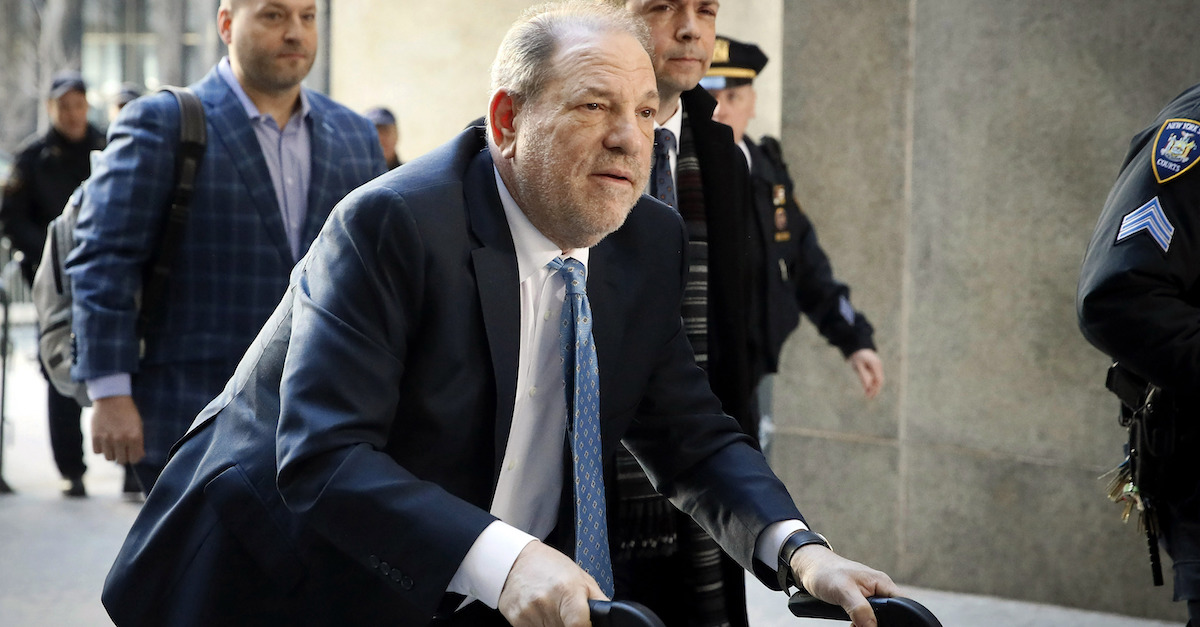
FILE – Harvey Weinstein arrives at a Manhattan courthouse as jury deliberations continue in his rape trial in New York, on Feb. 24, 2020. On Monday, Dec. 19, 2022, Weinstein was found guilty of rape at a Los Angeles trial in another #MeToo moment of reckoning, five years after he became a magnet for the movement. (AP Photo/John Minchillo, File)
After disgraced Hollywood producer Harvey Weinstein was convicted of rape in 2020 on the strength of “prior bad acts” allowed into evidence, the Empire State’s highest court found “egregious errors” by the trial court necessitated a new trial.
The New York Court of Appeals, which is the state’s top court (not the New York Supreme Court, the trial court), in a 4-3 decision on Thursday concluded that the “trial court erroneously admitted” Molineux testimony of “uncharged, alleged prior sexual acts against persons other than the complainants of the underlying crimes because that testimony served no material non-propensity purpose.”
“The court compounded that error when it ruled that defendant, who had no criminal history, could be cross examined about those allegations as well as numerous allegations of misconduct that portrayed defendant in a highly prejudicial light,” the decision contained. “The synergistic effect of these errors was not harmless.”
The majority explained that the “egregious errors” could only be cured by a new trial.
“The only evidence against defendant was the complainants’ testimony, and the result of the court’s rulings, on the one hand, was to bolster their credibility and diminish defendant’s character before the jury. On the other hand, the threat of a cross-examination highlighting these untested allegations undermined defendant’s right to testify,” the ruling said.
Weinstein’s appeal appeared to have lower court judges’ ear when raising claims that prejudicial testimony was inappropriately allowed into evidence and led to a 23-year sentence for sexually assaulting Jessica Mann and Mimi Haleyi (Weinstein was separately convicted of sexual assault in Los Angeles last year and was sentenced to 16 years).
The dissenters on the New York Court of Appeals, however, accused the majority of making a “grave error” of its own, calling the decision an “unfortunate step backwards from recent advances in our understanding of how sex crimes are perpetrated and why victims sometimes respond in seemingly counterintuitive ways, endangering decades of progress in this incredibly complex and nuanced area of law.”
“Much like the majority’s grave error with respect to the Molineux testimony, the majority fails to understand the importance of this particular form of credibility evidence in a case where defendant seeks to convince the jury that he had consent and that his accusers are simply lying,” the dissent said, railing against the “deeply patriarchal and misogynistic legal tradition.”
Law&Crime reached out to a Weinstein spokesman for comment.
Read the New York Court of Appeals 4-3 decision here.
Have a tip we should know? [email protected]

.jpeg) 1 week ago
22
1 week ago
22











 English (US)
English (US)